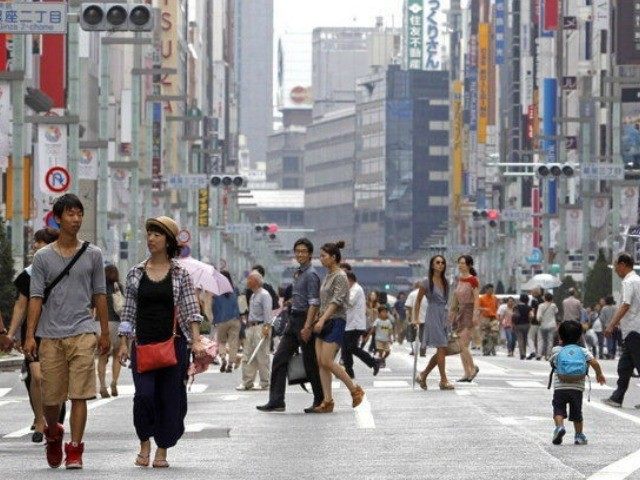Japan has been trapped in a demographic death spiral for years, as record-low birth rates produce an aging population that lacks enough young workers to sustain it.
There have been melancholy, and often downright bizarre, cultural side effects from the Japanese population collapse as well, including the development of robot children to stimulate maternal instincts, and the disturbing loss of even the younger generation’s sex drive. The latest proposal for reversing Japanese decline is something they regard with even more trepidation than building android babies: mass immigration.
ABC News in Australia lays out the dire stakes in this population game with the astounding projection that “Japan is on track to lose about half its workforce by 2060, and with that, its status as an economic superpower.” The island nation is nevertheless uncomfortable with Tokyo Immigration Bureau chief Hidenori Sakanaka’s call for large-scale immigration:
“We need an immigration revolution to bring in 10 million people in the next 50 years, otherwise the Japanese economy will collapse,” Mr Sakanaka said.
He said it was now a case of “populate or perish” and Japan had to change its mentality.
“Japan is an island country and we didn’t let foreigners enter for over 1,000 years, so we haven’t had great experiences living with other ethnic groups,” he said.
Japan’s last experience with immigrants did not end well.
To fuel Japan’s “economic miracle,” Brazilians of Japanese descent were encouraged to return in the 1980s and 1990s.
With their very different culture, they established communities and worked in factories, but when the bubble burst and companies downsized, many of the 300,000 Brazilians were sent home.
Shoko Takano stayed and set up a school to support the Brazilian community.
Most of the children are third or fourth generation but still cannot get Japanese citizenship.
“Japanese Brazilians are disadvantaged and they get bullied,” Ms Takano said.
“The kids can’t speak Japanese well so they’re bullied. They become dropouts and the job prospects are not good. The community is behind from the very start.”
The experiences of the United States with regard to South America and various European countries which rapidly imported huge Muslim populations, suggest that no society can readily absorb the kind of mass immigration wave Sakanaka is describing; no matter what other resources might be in place, assimilation takes time. The experience of the Brazilian Japanese points out a further difficulty: a shortage of jobs and entrepreneurial opportunities makes assimilation far more difficult, breeding resentment among both the native population and the new arrivals, even when the immigrants are racially almost identical to the host population, as in the case of the Brazilian-born Japanese. A population as diminished and aged as Japan’s will inevitably have a great deal of difficulty absorbing the kind of immigration wave that would be needed to fill its economy with young workers, no matter how “open” or “insular” the culture in question might be.
The Japanese are notoriously insular, and they seem well aware that it is a problem, as ABC mentions some 200 Japanese companies have been found guilty of mistreating foreign workers. Lawyer Shoichi Ibusuki, who represents one such litigant, blasted the Japanese visa system as unreasonable: “The government has to create a proper system to accept foreigners and understand them more. They’re using a distorted system and foreign workers’ human rights are being violated.” Many of the complaints revolve around policies deliberately intended to make immigrants feel like second-class, temporary residents of Japan, rather than fully vested permanent citizens.
Japan presently has a fertility rate of 1.4, far below the 2.1 needed merely to keep the population stable, combined with one of the longest average lifespans in the world. This would mean big trouble under any conceivable social and economic architecture, but it is positively catastrophic for a modern welfare state, which relies upon young and healthy workers to pay for the benefits of the elderly. There is no record of any society recovering from a demographic collapse like Japan’s; they are clearly worried that an immense immigration wave would transform, or even replace, the society they have now. If their economic and political strength is to be maintained through an era of global financial crises and regional challenges, they may have no choice but to give it a try.

COMMENTS
Please let us know if you're having issues with commenting.